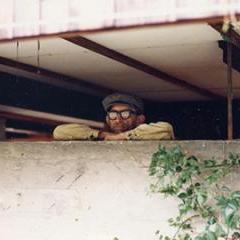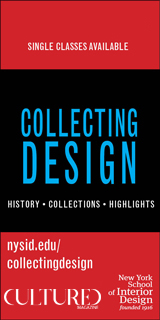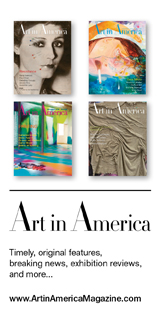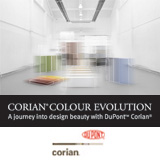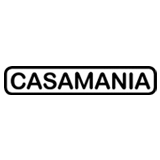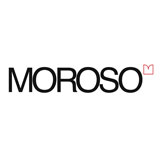Oskar Hansen: Open Form at Yale School go Architecture
1 September - 17 December
An exhibition highlighting the work of Oskar Hansen (1922-2005), architect, urban planner, and theorist, will open at the Yale School of Architecture (YSoA) on Sept. 1.
“Oskar Hansen: Open Form” traces the evolution of Hansen’s theory of Open Form from its origin in his own architectural projects to its application in film, visual games, and other artistic practices. The exhibition will be on view at YSoA through Dec. 17 in Paul Rudolph Hall, 180 York St. It is free and open to the public Monday-Friday 9 a.m.-5 p.m., and Saturday 10 a.m.-5 p.m.
Hansen was a member of Team 10, the architectural group that formed the first critical voice against the modernist orthodoxy of the Athens Charter and the followers of Le Corbusier. In his Open Form theory, Hansen proposed parting ways with the model of the all-knowing expert. His theory is aimed at the participation, process, and change of hierarchy between an artist and viewer, and embraces art-as-process, engaging the viewer, recipient, and user.
Hansen presented his Open Form theory at Team 10’s founding meeting — the International Congresses of Modern Architecture (CIAM) in 1959 — and continued to develop it through projects on various scales: from exhibition designs, temporary pavilions, and housing estates, to his Linear Continuous System, a project to establish decentralized cities running throughout Poland and the European continent. Regardless of the scale to which it was applied, the Open Form theory was intended to develop strategies of indeterminacy, flexibility, and collective participation.
For Hansen the role of architect in shaping the space was limited to the creation of a “perceptive background.” The architecture was supposed to expose the diversity of events and individuals present in the space. By focusing on the process, subjectivity, and the creation of contexts for individual expression, Hansen believed, architecture became a tool that can be used and transformed by its users, and adapted easily to their changing needs. During Hansen’s tenure at the Warsaw Academy of Fine Arts from 1952 to 1983, he passed on his theory of Open Form to generations of students, encouraging them to pursue art practices beyond traditional disciplines.
The exhibition is divided into seven sections that develop the idea of Open Form through the main areas to which Hansen applied it. The sections are intertwined so the way of visiting the show largely depends on the viewer, making the exhibition itself a kind of Open Form experience. “Architect as a Curator” addresses Hansen’s dual role as an architect and curator. “Politics of Scale” is dedicated to Hansen’s utopian and socialist approach to urban planning. “Counter-Monument” explores one of the first public discussions centering on the application of Open Form principles to memory, monument, and sculpture. “Architecture as Events” presents Hansen’s research in the field of cybernetics — liaisons of architecture and the media — as well as mobile architecture. “House as Open Form” explores — via a house and an apartment designed by Hansen and his wife, Zofia Hansen — a number of progressive architectural concepts developed during its construction. “Art and Didactics” looks at Hansen’s teaching methods during his tenure at Warsaw Academy of Fine Arts. In “Tradition of Open Form,” various approaches to the idea of Open Form are presented through the works of Grzegorz Kowalski, Artur Zmijewski, Paweł Althamer, KwieKulik, and Pawel Kwiek, among others.
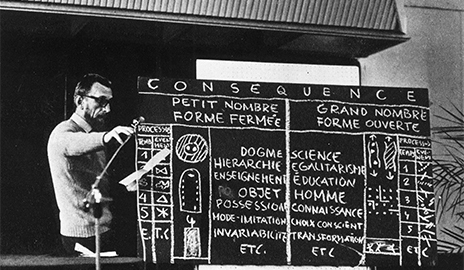
Renowned architect Oskar Hansen is pictured here at the AICA congress in Wrocław in 1975. (Photo by S. Stępniewski, courtesy of Warsaw Academy of Fine Arts Museum)
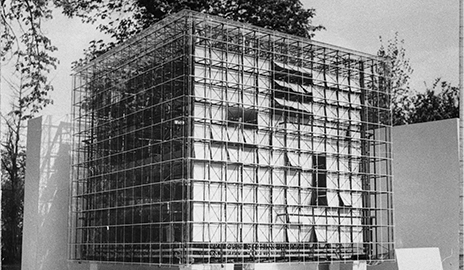
Oskar Hansen, Lech Tomaszewski, Stanisław Zamecznik, Design for the Zachęta gallery extension, a model, 1958. (Courtesy of the Stanisław Zamecznik Archive, Museum of Modern Art in Warsaw)






